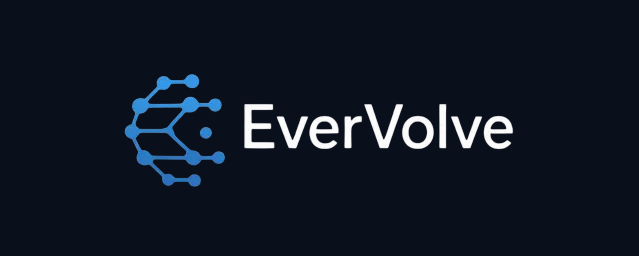Gemini for Home: Expanding the Platform for a New Era of Smart Home AI

Google’s latest smart home overhaul isn’t just a product refresh—it’s a strategic pivot. With the launch of Gemini for Home, Google is retiring its legacy Assistant and reimagining the smart home as a conversational, context-aware ecosystem powered by large language models (LLMs). From upgraded Nest cameras to a redesigned Home app and a new subscription model, Gemini for Home marks the beginning of a new AI-native era in domestic technology.
We explore the platform’s architecture, hardware integration, subscription tiers, and broader implications for smart home design, privacy, and third-party ecosystems.
Goodbye Assistant, Hello Gemini
Gemini for Home replaces Google Assistant across smart speakers, displays, cameras, and doorbells. Unlike Assistant’s command-based structure, Gemini is built for natural conversation, context retention, and multi-step reasoning.
Examples of Gemini’s capabilities:
- “Turn off all the lights except the ones in the bedroom.”
- “Lock the front door and set the thermostat to 22 degrees.”
- “Play that song from the movie where Ben Affleck goes to space.”
Gemini understands spatial context (e.g., which room you’re in), supports interruptions, and can handle clarifying questions mid-command. It’s optimized for communal environments, with support for six voice profiles per household.
Gemini Live and the End of Wake Words
One of the most transformative features is Gemini Live, a hands-free mode that eliminates the need for “Hey Google.” Users can initiate a continuous conversation with “Let’s chat,” and Gemini will keep the mic open for back-and-forth exchanges.
Key features:
- Real-time clarification: Gemini reopens the mic when it needs more info.
- Natural pacing: New voice options mimic human intonation and rhythm.
- Privacy safeguards: Conversations are not stored in the Gemini app history.
Gemini Live is currently available on Nest Audio, Nest Hub Max, and 2nd-gen Nest Hub, with broader rollout planned.
Hardware Integration: Nest, Walmart, and Legacy Support
Google introduced three new 2K Nest devices:
- Nest Cam Indoor
- Nest Cam Outdoor
- Nest Doorbell
These feature:
- Full-color night vision
- Dynamic zoom and crop
- UV-resistant resin for outdoor durability
- Free cloud storage for 6 hours of clips
Importantly, Gemini for Home supports Nest devices dating back to 2015, making it one of the most inclusive retrofits of AI into legacy hardware.
Google also partnered with Walmart to launch affordable onn-branded cameras and doorbells, expanding access to Gemini-powered devices.
The New Google Home App
The redesigned Google Home app is the central hub for Gemini interactions. It features:
- Three-tab layout: Home, Activity, Automations
- Ask Home button: Natural language queries for device control and event search
- Home Brief: Daily summaries of household activity
- Gesture controls: Swipe and double-tap for camera playback
Performance upgrades:
- 70% faster load times
- 80% fewer crashes on Android
The app integrates features from the legacy Nest app and supports Matter and Google Home Cloud-to-Cloud APIs, enabling cross-brand compatibility.
Subscription Model: Google Home Premium
Google is sunsetting Nest Aware and introducing Google Home Premium:
| Tier | Price | Features |
|---|---|---|
| Free | $0/month | Basic commands, device control, 6-hour clip storage |
| Standard | $10/month | 30-day video history, Gemini automations, intelligent alerts |
| Premium | $20/month | Gemini Live, Home Brief, Ask Home, AI-enhanced camera intelligence |
| AI Pro / Ultra | Bundled | Included with broader Gemini subscriptions |
This shift reflects Google’s broader monetization strategy around AI services, aligning smart home features with its Gemini ecosystem.
Third-Party Ecosystem and Developer Tools
Google is opening Gemini for Home to third-party manufacturers via:
- Camera SDKs
- Reference hardware designs
- System-on-Chip (SoC) recommendations
- Cloud-to-Cloud APIs
Walmart is the first partner, with more expected in 2026. The goal is to make Gemini a platform, not just a product—similar to Android’s open model.
AI-Enhanced Camera Intelligence
Gemini transforms how cameras operate:
- Event summarization: Instead of dozens of alerts, users get concise summaries.
- Contextual notifications: “Your package was delivered at 3:42 PM” vs. “Motion detected.”
- Ask Home search: “Show me when the dog left the backyard yesterday.”
These features reduce notification fatigue and increase situational awareness, especially for families and remote monitoring.
Privacy and Personalization
Gemini supports multiple voice profiles, enabling personalized responses:
- A parent asking for work reminders
- A child requesting a homework playlist
Privacy features include:
- No wake word required in Gemini Live
- No storage of prompts/responses in app history
- Opt-in voice matching with revocable permissions
Google says it’s committed to on-device processing for sensitive tasks, though cloud-based features remain central to Gemini’s intelligence.
Competitive Landscape: Amazon, Apple, OpenAI
Gemini for Home enters a crowded field:
- Amazon Alexa+: Upgraded Echo speakers with smoother interactions
- Apple: Rumored smart display with robotic arm and Gemini integration
- OpenAI: Developing a smart device with Jony Ive
Google’s edge lies in its ecosystem scale—over 800 million connected devices—and its ability to retrofit AI into existing hardware.
Future Outlook : Google Home Speaker 2026
Google teased a redesigned Google Home speaker, dropping the Nest branding. Set to launch in spring 2026, it will showcase:
- Gemini Live integration
- Spatial awareness
- Multi-modal interaction (voice, gesture, ambient sensing)
This signals a shift toward ambient computing, where devices respond to presence, emotion, and context—not just commands.
Gemini for Home as a Platform
Gemini for Home isn’t just a smarter assistant—it’s a platform shift. By combining conversational AI, legacy hardware support, and third-party integration, Google is building a smart home ecosystem that’s contextual, scalable, and deeply personalized.
The transition from Assistant to Gemini reflects a broader trend: AI is no longer a feature—it’s the foundation. And in the home, that means rethinking how we interact with devices, data, and each other.
For more AI News.
Enjoyed this post?
Subscribe to Evervolve weekly for curated startup signals.
Join Now →







